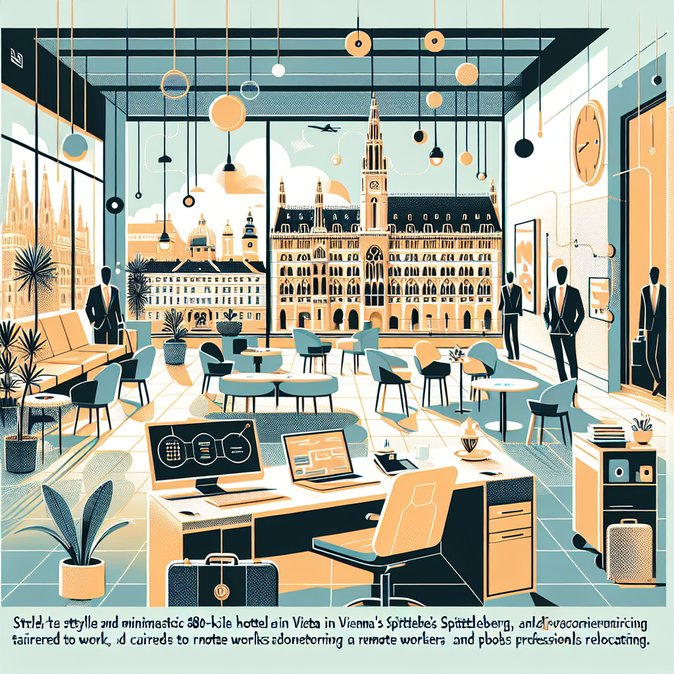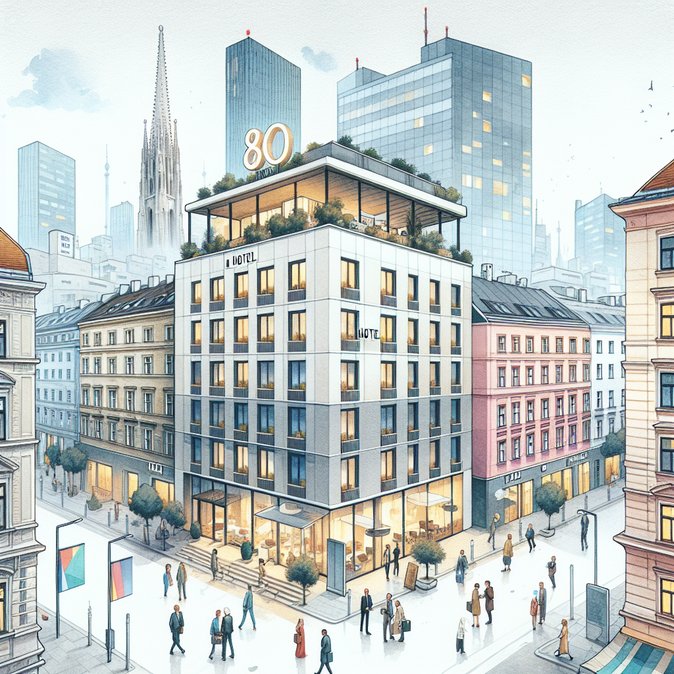
Miiro Hotels has unveiled its latest property, Miiro Spittelberg, in Vienna’s Seventh District—an area popular with start-ups and expats for its café culture and proximity to the city’s main technology cluster. The opening, reported by Travel & Tour World, adds 80 design-forward rooms and apartments aimed at ‘global nomads’ who blend leisure with location-independent work.
The hotel features co-working lounges, sound-proof video-call booths and weekly networking events curated in partnership with the Vienna Business Agency. For corporations relocating staff, the property’s 30-day “settle-in” package bundles accommodation, registration assistance (Meldezettel) and German crash courses, easing the transition for international hires awaiting longer-term housing.
![Boutique Brand ‘Miiro’ Opens Flagship Hotel in Vienna’s Spittelberg Creative District]()
From a regulatory standpoint, the hotel launch dovetails with Vienna’s tightened short-stay rules, which cap private-home rentals at 90 nights per year unless owners obtain commercial licences. By operating under a hotel permit, Miiro sidesteps these limits and offers a compliant alternative for HR teams wary of grey-market Airbnb listings that can jeopardise residence-registration timelines.
Local officials welcome the investment, citing the creation of 50 jobs and an expected €7 million annual economic impact. Tourism board data show that design-led boutique inventory in Vienna grew 11 percent in 2024–25, reflecting demand from remote professionals and start-up conference delegates. Analysts believe Miiro’s model—blending hospitality with flexible workspace—could become a template for future expatriate housing solutions, particularly as Vienna prepares for an influx of foreign talent linked to EU-funded quantum-computing projects.
The hotel features co-working lounges, sound-proof video-call booths and weekly networking events curated in partnership with the Vienna Business Agency. For corporations relocating staff, the property’s 30-day “settle-in” package bundles accommodation, registration assistance (Meldezettel) and German crash courses, easing the transition for international hires awaiting longer-term housing.

From a regulatory standpoint, the hotel launch dovetails with Vienna’s tightened short-stay rules, which cap private-home rentals at 90 nights per year unless owners obtain commercial licences. By operating under a hotel permit, Miiro sidesteps these limits and offers a compliant alternative for HR teams wary of grey-market Airbnb listings that can jeopardise residence-registration timelines.
Local officials welcome the investment, citing the creation of 50 jobs and an expected €7 million annual economic impact. Tourism board data show that design-led boutique inventory in Vienna grew 11 percent in 2024–25, reflecting demand from remote professionals and start-up conference delegates. Analysts believe Miiro’s model—blending hospitality with flexible workspace—could become a template for future expatriate housing solutions, particularly as Vienna prepares for an influx of foreign talent linked to EU-funded quantum-computing projects.









